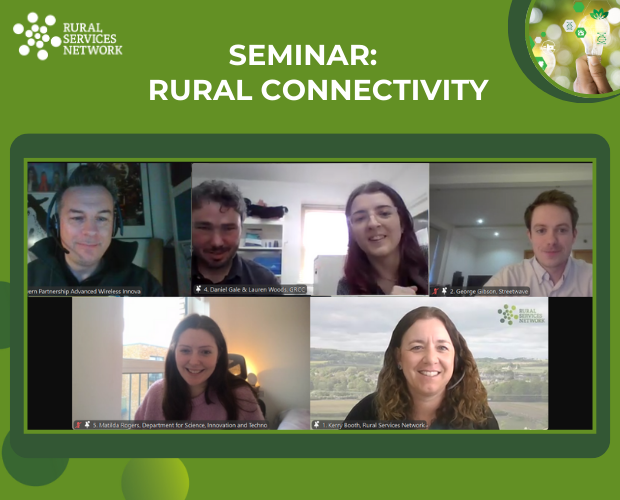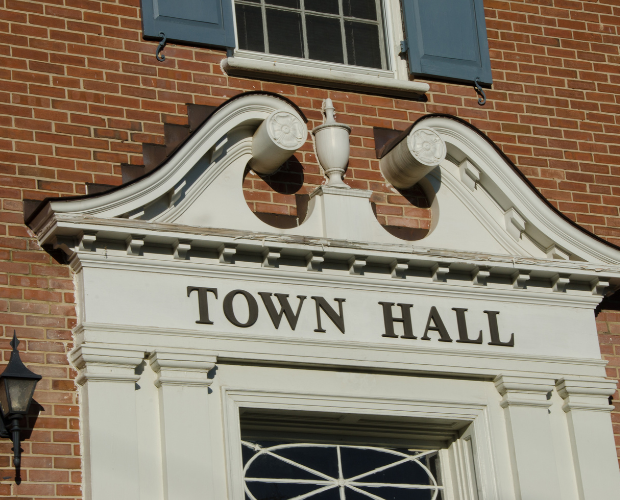T: 01822 851370 E: [email protected]
Cautious welcome to local government provisional settlement
 PRESS RELEASE
PRESS RELEASE
For immediate release
Tuesday, 19 December 2017
Rural Services Network gives cautious welcome to provisional finance settlement for local government
The Rural Services Network [1] has welcomed the government's provisional local finance settlement for local authorities – but warned that more must be done to ensure a fairer deal for rural communities.
The provisional local government finance settlement – including a £15m increase in the rural services delivery grant – was announced by Communities Secretary Sajid Javid on Tuesday, 19 December [2].
Responding to the announcement, RSN chief executive Graham Biggs MBE said: "On balance it was a good settlement for rural authorities – but, as always, the devil is in the detail which we have not seen yet.
"Once again, the Secretary of State went out of his way to say that rural authorities are important and that he wants to increase funding to them.
"There was also an increase in the Rural Services Delivery Grant (RSDG) which irons out the anomaly of the reduction in 2018-19 – although this is more symbolic than making a huge different in cash terms."
Mr Biggs said it was important to note that only "super sparsely populated" local authorities would receive the RSDG grant – even though other rural authorities also faced higher costs associated with providing public services to sparsely populated areas.
The decision to make no changes to the New Homes Bonus scheme was also welcomed.
But Mr Biggs said it was very disappointing there was no extra help for adult social care, the costs of which were much higher in rural areas with its greater older population and higher service delivery costs [3].
It was also disappointing there was no replacement for the Transition Grant, which would hit hard those rural authorities which had received it and mean more cuts to frontline services in many rural areas.
Mr Biggs said: "Rural residents continue to pay more, receive fewer services and, on average, earn less than those in urban areas and that is inequitable."
Council tax was historically high in rural areas to compensate for systematic underfunding of rural areas by government grant, said Mr Biggs.
"Given this, it remains grossly unfair to rely on council tax to fund council services more in rural areas than in urban areas – especially given that rural wages are lower."
Media contact:
Graham Biggs MBE
RSN chief executive
T: 01588 674 922
M: 07966 790197
E: [email protected]
W: www.rsnonline.org.uk
Editor's notes:
1) The Rural Services Network is the only non-governmental organisation representing the interests of rural service providers and the communities that they serve. It involves currently some 154 Local Authorities and over 100 other service providers.
It comprises SPARSE Rural, the Rural Assembly, the wider Rural Services Partnership and the RSN Community Group. The organisation works with Rural England, a stand-alone CIC research group. For details, visit www.rsnonline.org.uk.
2) The provisional local government finance settlement for (2018-19) was announced on Tuesday, 19 December 2017. To see it, visit https://www.gov.uk/government/news/government-sets-out-further-measures-to-support-councils-to-deliver-services
3) In Predominantly Rural areas, 98.8% of the projected 20-year population increase (2015 to 2035) relates to the over 65 age group. The projected population increase of over 65s in Predominantly Urban areas accounts for 52.8% of the total increase and will impact significantly on the social care costs for rural areas.
Our Key Messages:
Public Sector Funding
Central Government has historically and systematically underfunded rural areas giving them less grant per head than urban areas – despite the fact that it costs more to provide the services. Rural residents earn less on average than those in urban areas and therefore pay more Council Tax for fewer local government services. Government policy, implicitly, is that council services in rural areas are more reliant on funding through council tax than their urban counterparts. We demand fairer funding for all public services serving rural areas.
Barriers to Access
Rural residents and businesses face multiple barriers in terms of access to key services, including transport and broadband. Yet councils providing services to rural residents receive less money from government, pay disproportionately more for fewer services and typically earn less than people in urban areas. As a result rural residents suffer multiple disadvantages.
Future of Rural Areas
Rural communities contribute a great deal to the national economy but are facing threats to their future. This is due to a combination of chronic underfunding, demographic challenges, diminishing resources, with the needs of rural areas being systematically overlooked. Without action conditions in rural areas will deteriorate further. It is in the national interest that we all work together to revitalise this fundamental national asset.
Health and Wellbeing
Despite its idyllic image, rural communities often experience difficulties in accessing health and support services. This is becoming increasingly difficult as specialist services are centralised to remain resilient and poor transport links reduce access. There are recruitment and retention issues amongst medical staff in rural areas. Rural residents are therefore vulnerable to isolation and poorer health outcomes in the long term.
SIGN UP TO OUR NEWSLETTER
Sign up to our newsletter to receive all the latest news and updates.









